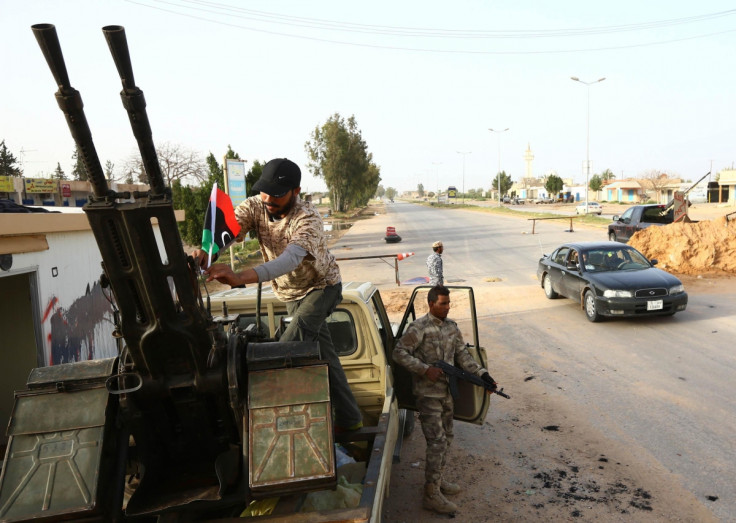Libya: Clashes and mass kidnappings as confrontation looms between militias controlling Tripoli

Clashes between militias in control of the Libyan capital Tripoli have erupted as the groups, formally allied under the city's national salvation government, clash over mass kidnappings.
Relations have continued to deteriorate between the armed groups which have held sway over Libya's western capital. The most recent round of confrontations has boiled over into fresh clashes, as hardline Tripoli forces demand the expulsion of brigades from Misrata.
A Tripoli-based activist told IBTimes UK the skirmishes took place between the Misratan militias and Tripoli's Islamist Abu Salim brigade on a bridge linking Abu Salim to the highway and rest of the capital, not far from the city's Hadba hospital. There have been no reported casualties in the fighting.
The clashes followed a statement by the Tripoli militias demanding Misrata withdraw from the capital. The Tripoli brigades then kidnapped 54 individuals, mostly civilians, almost entirely from Misrata.
The activist said roughly half of the hostages had been released through mediation between local councils and the fighting had subsided. "Abu Salim held a meeting last night where the municipal council of Misrata released 27 kidnapped persons out of 54," he explained.
The clashes in Libya's capital, which has been spared the worst of the violence in Libya's ongoing civil war, is the latest in a series of confrontations in Tripoli which have seen clashes on the outskirts of the city and an assault on the prime minister.
Misrata and Tripoli brigades united under the banner of Libya Dawn to take control of Tripoli in August 2014. The offensive against militias from Libya's mountainous western region and the town of Zintan allowed the groups access to Libya's administrative centre. In the following weeks a government of national salvation was declared and the country effectively partitioned with Libya's internationally recognised government forced to flee to Beida in the east.
Misrata has seen its interests damaged by Libya's civil war and made deals with some local forces to the west of Tripoli which ignited tensions between the groups.
© Copyright IBTimes 2024. All rights reserved.






